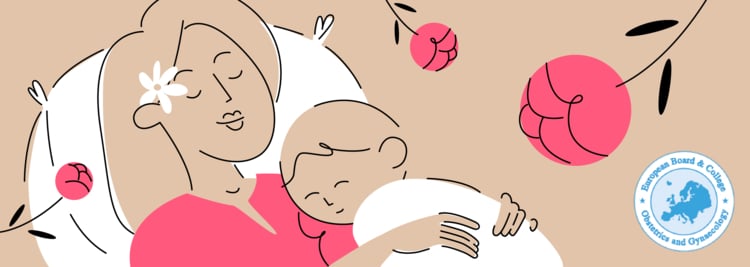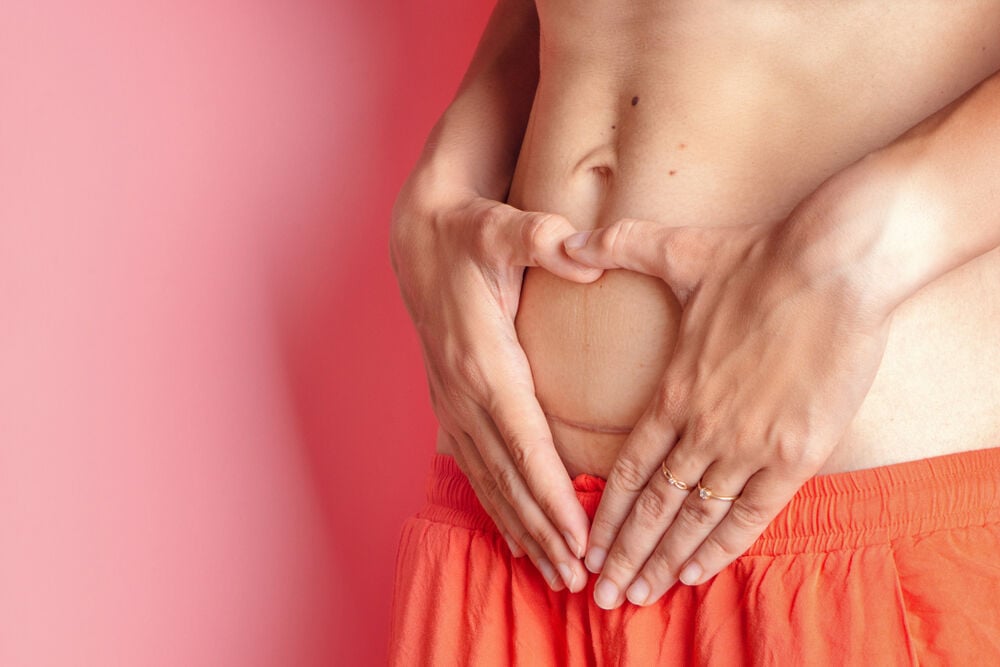After delivery by cesarean section, women typically stay in the hospital for 2–4 days but can go home earlier if the mother and baby are well.
-
Tracking cycle
-
Getting pregnant
-
Pregnancy
-
Help Center
-
Flo for Partners
-
Anonymous Mode
-
Flo app reviews
-
Flo Premium New
-
Secret Chats New
-
Symptom Checker New
-
Your cycle
-
Health 360°
-
Getting pregnant
-
Pregnancy
-
Being a mom
-
LGBTQ+
-
Quizzes
-
Ovulation calculator
-
hCG calculator
-
Pregnancy test calculator
-
Menstrual cycle calculator
-
Period calculator
-
Implantation calculator
-
Pregnancy weeks to months calculator
-
Pregnancy due date calculator
-
IVF and FET due date calculator
-
Due date calculator by ultrasound
-
Medical Affairs
-
Science & Research
-
Pass It On Project New
-
Privacy Portal
-
Press Center
-
Flo Accuracy
-
Careers
-
Contact Us
Recovering After a Cesarean Section


Every piece of content at Flo Health adheres to the highest editorial standards for language, style, and medical accuracy. To learn what we do to deliver the best health and lifestyle insights to you, check out our content review principles.
The first day after the cesarean section
After surgery, women will be offered pain-relieving medication (acetaminophen and ibuprofen, but not aspirin). During the first day, this can be supplemented with stronger pain medication as needed. It is safe to breastfeed while taking these medicines.
It’s important that the pain after C-section is well-treated to encourage mobilization and to allow for normal activity, including coughing. The pain should become better after a few days. Women usually take pain medication for 5–7 days after a cesarean section.
After a cesarean section, it’s important to get out of bed and move around as soon as possible to reduce the risk of blood clots and to initiate a bowel movement. Chewing gum regularly after the cesarean section will also help with bowel movements and C-section recovery.
READ MORE: Questions to ask before a C-section
Take a quiz
Find out what you can do with our Health Assistant
Managing your activity while recovering from C-section
Mobilization and lifting are allowed until the point where you feel pain while on relevant and regular pain medication. Listen to your body and start slowly increasing your activity when you feel like it.
It’s beneficial to walk and stay mobile, as this prevents excessive blood clotting.
It’s alright to have sexual intercourse when you feel ready for it and if it does not hurt. If there is still discharge, it’s recommended to use a condom to prevent infection. If you feel dryness, you can use lubricants.
Please consider contraceptives, as you might get pregnant again — even while breastfeeding. It’s recommended to wait a year before getting pregnant again so the C-section scar can have optimal time to heal.
Taking care of the C-section scar

After the first day, the dressing can be removed from the wound. Keep the wound clean by washing it daily with water and mild soap; don’t scrub it. If Steri-Strips or glue were used to close your wound, don’t try to wash them off.
The scar will be red and obvious at first, but it will fade with time. Check it for signs of infection (see below).
C-section recovery: preventing infection
After a cesarean section, there is a slight risk of infection in the C-section scar, uterus, or bladder. To prevent infection, avoid taking baths or swimming as long as there’s vaginal bleeding and at least two weeks after delivery. Additionally, avoid using tampons.
Warning signs of infection
In case of signs of infection or other complications, contact your health care provider. These signs include:
- Fever of 100.4 F (38.0 C) or more
- Increasing pain, swelling, or redness of the wound
- Pain when urinating
- Discharge from the wound
- Increasing, heavy vaginal bleeding
- Unpleasant odor of vaginal discharge
- Cough or shortness of breath
- Swelling or pain in your leg
Getting support during C-section recovery
No matter the type of delivery, new mothers need time to rest, heal, and get used to motherhood. That’s why it’s important to get support from family, friends, or others.
Emotional support can be as important as household assistance. It’s common to feel overwhelmed during the early postpartum period. Having someone to talk to openly may be beneficial. Don’t hesitate to ask for help from those close to you or your healthcare provider if you feel that you need it.
On a final note about C-section recovery
After a cesarean section, listen to your body, start slowly increasing your activity when you feel like it, and remember to take relevant pain medication. After a few weeks, you’ll be back to your normal activity level. Follow the recommendations of your healthcare provider and enjoy your time with your baby!
Content created in association with EBCOG, the European Board & College of Obstetrics and Gynaecology


Hey, I'm Anique
I started using Flo app to track my period and ovulation because we wanted to have a baby.


The Flo app helped me learn about my body and spot ovulation signs during our conception journey.


I vividly
remember the day
that we switched
Flo into
Pregnancy Mode — it was
such a special
moment.
Real stories, real results
Learn how the Flo app became an amazing cheerleader for us on our conception journey.




